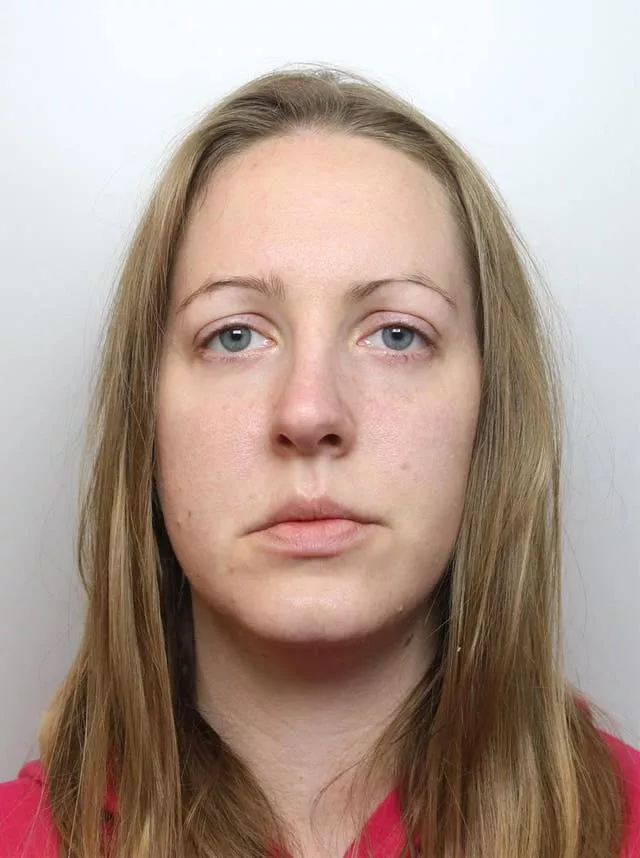The NHS ombudsman has called for a planned inquiry into the child serial killer Lucy Letby to be put on a statutory footing and for there to be a wider review of leadership and culture in the health service.
Parliamentary and Health Service Ombudsman Rob Behrens has set out his views in a letter to Health Secretary Steve Barclay, which will put further pressure on the Government to expand the powers available to the inquiry.
The British government ordered a probe after the nurse was last week found guilty of murdering seven babies and trying to murder six more.
Ministers said the inquiry will investigate the events on the Countess of Chester Hospital’s neonatal unit between 2015 and 2016 to ensure lessons are learned.

But there have been calls for the inquiry to be put on a statutory footing, including from Labour leader Sir Keir Starmer.
Mr Behrens said in the letter: “Only a statutory inquiry can provide the strong legal powers necessary to compel witnesses and the release of evidence.
“The inquiry should have all possible levers available to it to get to the truth. The families involved deserve no less.”
The ombudsman told BBC Radio 4’s World At One programme: “I think it would be wise for the Secretary of State to make this inquiry a more wide-ranging statutory inquiry.
“The second thing is that we need a… cross-party, independent review of leadership, accountability and culture in the NHS.”
Mr Behrens said in his letter: “Although the appalling actions of Lucy Letby are extremely rare, unfortunately, the culture of fear in NHS trusts is not isolated to this case.
“Leaders dismissing the concerns of staff is a pattern of behaviour that we see repeated across the NHS.”
The ombudsman also told the BBC he wanted his powers expanded to allow him to investigate wider issues in addition to his current role, which he described as being focused on the complaints of NHS users.
He said: “I have had clinicians throughout the last six years get in touch with me and say they have patient safety issues to raise, but they fear that if they raise them they will be disciplined, and they will lose their careers.”
Mr Behrens added: “Under the law I cannot, as it presently stands, I cannot look at the complaints of staff, only at service users.”

He said: “The whistleblowing legislation in England doesn’t work properly and it needs badly reforming in a way that has taken place in Scotland,” adding: “I have been arguing for six years that my powers are too constrained.”
The ombudsman added: “All my international counterparts have the power to look into issues that have not been complained about. I do not have that power. I can only investigate cases where people complain.”
“The law needs to be changed on that,” Mr Behrens said.







